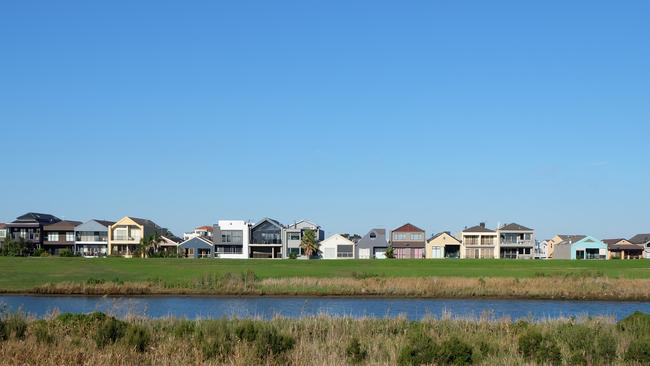
The only thing is that inside the big banks – which is where you would expect to find the evidence – it is nowhere to be seen.
Bank results offer the best quality data on what is a loosely defined problem and Westpac’s result on Monday offered some striking figures. It may be hard to believe this but mortgage delinquencies – the signal that borrowers are facing trouble due to late payments – are falling on every measure over every time period.
Delinquencies can be measured on a 30-day or 90-day basis.
Volumes in both categories shrunk year on year or six months against the previous six months. Even customers in hardship – surely a benchmark number for stress – fell over both periods.
This does not mean mortgage stress should be ignored.
Financial counsellors report a recent uptick in demand for help among households where mortgage costs are affecting the ability to pay other household bills.
Neither does it mean that the picture in the months ahead will continue to be benign – rates have still to go up another 100 basis points according to forecasts.
But these bank numbers for the year to September 30 undercut a range of surveys which received a lot of airplay in recent months suggesting there is widespread mortgage stress in the market already.
Finder, for example, released a survey earlier this month which said more than 30 per cent of homeowners‘said they would be under serious financial stress if their home loan rate was to reach between 5 and 7 per cent.
Or the Mortgage Choice survey which found one-in-three were “losing sleep” over hikes.
Perhaps the yawning gap between the hard numbers and gloom and doom among forecasters tells us more about the concept of mortgage stress than it does about the housing market. “Mortgage stress is a very subjective concept, once you go beyond the bank data it’s pretty hard to pin down,” says Eliza Owen at CoreLogic.
The way it works, different organisations use different measures for mortgage stress, so it is hardly a surprise we get such a disparity in numbers. At its worst mortgage stress is an economic concept where homeowners might not ever know they were in mortgage stress except that they come up in survey numbers.
Bank chief executives have consistently pointed to a cushion built up by many homeowners during the Covid-19 pandemic when they got ahead of payments. Economists also point out that there is rarely widespread mortgage stress when there is very low unemployment.
“The data that is coming in the near future which fully captures the mortgage rate rises -especially the homeowners who moved off fixed rate to variable – may tell a different story,” says Pete Wargent of Buyers Buyers. “It may be that the bank numbers do not change drastically – the pattern in the market is that Australians will pay their mortgage whatever it takes – that means they may cut back on other items. We may see the stress coming through in reduced retail spending in the months ahead.”
Oddly, in common with mortgage stress data, retail spending data also remains robust after months of rising rates. National Australia Bank market research describes the latest retail data as “very positive”. In other words, the current evidence of less retail spending seems as scarce as the numbers on mortgage stress.
Perhaps, the latest consumer confidence figures are the numbers to watch from here on. Consumer sentiment is now below the levels recorded in the Global Financial Crisis. Moreover, a closer look at the numbers shows the confidence drops were much worse for those with a mortgage than any other group.
Overall, consumer confidence fell 7 per cent – more or less where they were during the pandemic. For those that owned their homes outright, confidence actually rose by 1.9 per cent and for those who were renting the figure fell 10 per cent. For those with a mortgage, it dropped a thumping 16 per cent.








If we were to believe everything we hear, then mortgage stress is escalating across the country.